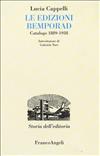
Iqbal Masih. New forms of slavery examines how the concept of slavery evolved through the 19th and 20th centuries - The definition of slavery used by the international organizations - League of Nations, International Labour Organization, United Nations - has acquired an ever broader significance: in place of chattel slavery, it has come to include the different forms of the violent subjection of men, women and children in order to exploit them. The "new forms of slavery" of the contemporary period differ from the traditional ones (which still exist in some countries, such as Mauritania), while still maintaining various elements of continuity with them. The comparison between old and new forms of slavery can deepen our understanding of both at the historiographic level.
Key words: Slavery, Contemporary Slavery, Human Trafficking, Human rights.
Parole chiave: schiavitù, nuove schiavitù, tratta, diritti umani.




